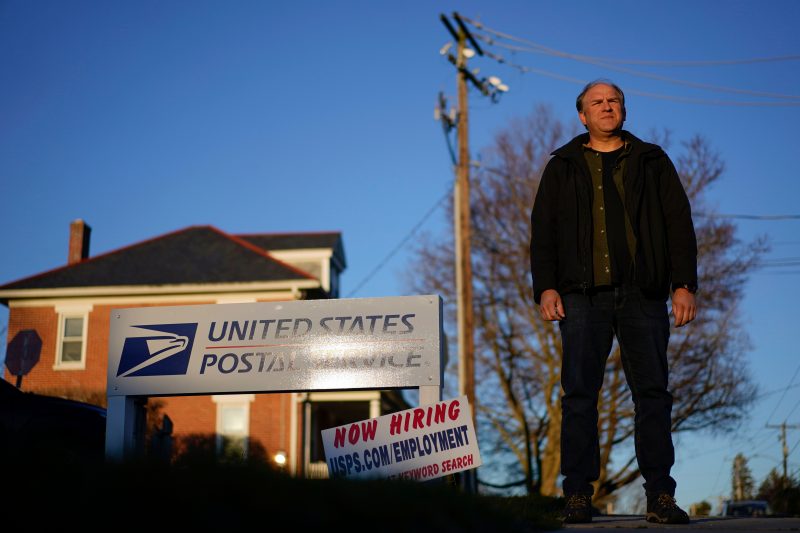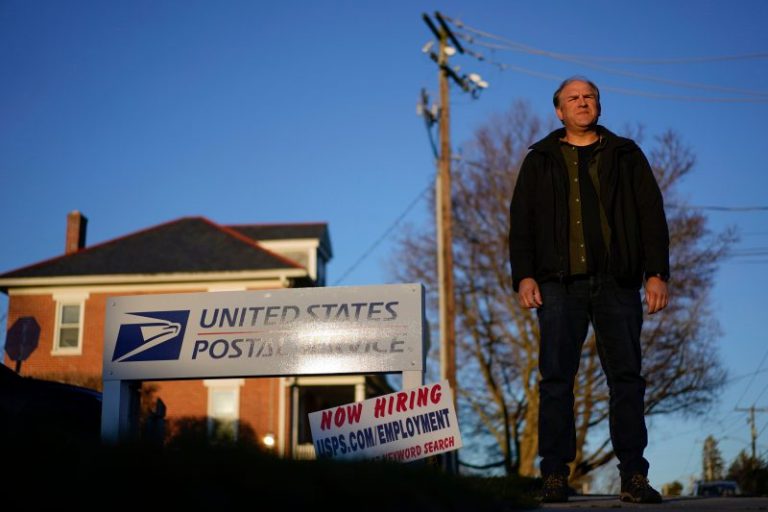
The Supreme Court on Thursday strengthened protections for religious rights in the workplace, siding in part with a Sabbath-observant mail carrier who quit the U.S. Postal Service after he was forced to deliver packages on Sundays.
Gerald Groff, the former postal worker, had asked the justices to overturn a decades-old Supreme Court decision, which his lawyers said undermines religious protections by allowing employers to deny accommodations that would cause them more than a minor inconvenience.
In a unanimous decision, authored by Justice Samuel A. Alito Jr., the justices declined to get rid of past precedent, and instead clarified that employers must meet a higher standard to reject a worker’s request related to religious observance.
At issue in Groff’s case is Title VII of the Civil Rights Act, which prohibits religious discrimination in the workplace and requires employers to reasonably accommodate an employee’s observance unless that accommodation imposes an “undue hardship” on the business. In 1977, the court defined such a hardship as an accommodation that would place more than a minimal burden or “de minimis cost,” on the company’s operations.
Groff’s lawyers asked the court to overrule that decision, Trans World Airlines v. Hardison, which has long drawn criticism from some conservative justices.
Instead, the court ruled Thursday that an undue hardship is “shown when a burden is substantial in the overall context of an employer’s business.”
Supreme Court 2023 decisions
End of carousel
“Faced with an accommodation request like Groff’s, it would not be enough for an employer to conclude that forcing other employees to work overtime would constitute an undue hardship. Consideration of other options, such as voluntary shift swapping, would also be necessary,” Alito wrote.
The court’s opinion did not address whether the Postal Service should have accommodated Groff’s request not to work on Sundays. The ruling sends the case back to the lower courts to apply the new standard.
The Biden administration had urged the justices not to toss the earlier decision, which it said has been interpreted by many lower courts and the Equal Employment Opportunity Commission to provide “meaningful protection for religious observance without imposing substantial burdens on employers and co-workers.”
In his opinion, Alito said the court’s ruling — which he described as a “clarification” — was unlikely to have a major impact on guidance the EEOC provides going forward.
“Today’s clarification may prompt little, if any, change in the agency’s guidance explaining why no undue hardship is imposed by temporary costs, voluntary shift swapping, occasional shift swapping, or administrative costs,” he wrote. “What is most important is that ‘undue hardship’ in Title VII means what it says, and courts should resolve whether a hardship would be substantial in the context of an employer’s business in the commonsense manner that it would use in applying any such test.”
Groff’s legal team from the First Liberty Institute welcomed the ruling, saying it would require more employers to grant accommodations to their religious workers who seek, for instance, to honor their holy days, take prayer breaks or dress according to their religious beliefs.
Postal Service spokeswoman Felicia Lott said the court’s decision is consistent with “the standard we apply when seeking to accommodate the sincerely held religious beliefs, observances, and practices of our employees.” For that reason, she added, “we are confident that the Postal Service will again prevail when the case is remanded.”
At oral argument in April, a majority of the justices seemed interested in a compromise that would balance religious rights in the workplace with the burden they might impose on employers and co-workers. But there was also reason to think that the court would be receptive to Groff’s position. Three members of the court’s conservative majority — Justices Alito, Clarence Thomas, and Neil M. Gorsuch — had already expressed skepticism about the 1977 decision.
More broadly, the court’s majority has been increasingly protective of religious liberty, handing a number of successes to religious conservatives.
In Groff’s case, religious liberty scholars told the court that making allowances for the special needs of religious workers does not discriminate against others who do not have similar needs. Religious accommodations, they said, should be treated no differently than allowances for disability, pregnancy and family medical issues.
As a mail carrier in Lancaster County, Pa., Groff was required to fill in for co-workers on holidays and Saturdays — but not on Sundays, when there is no mail delivery.
That changed less than a year into his tenure, when the Postal Service entered an agreement with the online retail giant Amazon to deliver packages on Sundays. (Amazon founder Jeff Bezos owns The Washington Post.) Groff, an evangelical Christian, was initially exempted from Sunday deliveries to observe the Sabbath, a day he reserved for worship and rest. But after the union representing postal workers created a new system for filling Sunday shifts, Groff was told he would have to be available.
His absences on Sundays led co-workers to quit, transfer or cover for him. Groff eventually decided to resign and sued the Postal Service for discrimination.
Groff lost at the federal district court and U.S. Court of Appeals for the 3rd Circuit, which said his refusal to work on Sundays had “actually imposed on his co-workers, disrupted the workplace and workflow, and diminished employee morale.”
On Thursday, he said in a statement that he hopes the Supreme Court’s unanimous decision “allows others to be able to maintain their convictions without living in fear of losing their jobs because of what they believe.”
The case is Groff v. DeJoy.


Comments are closed.